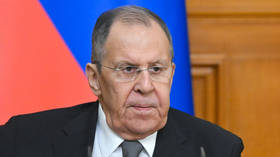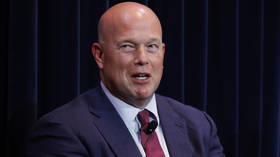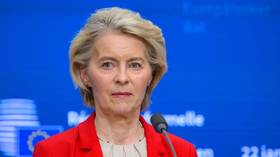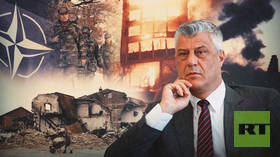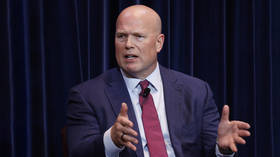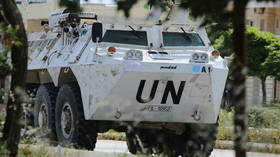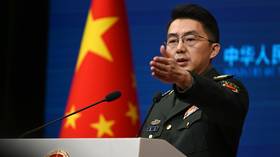‘Right Sector could destroy Minsk peace deal before it even starts’ – analyst
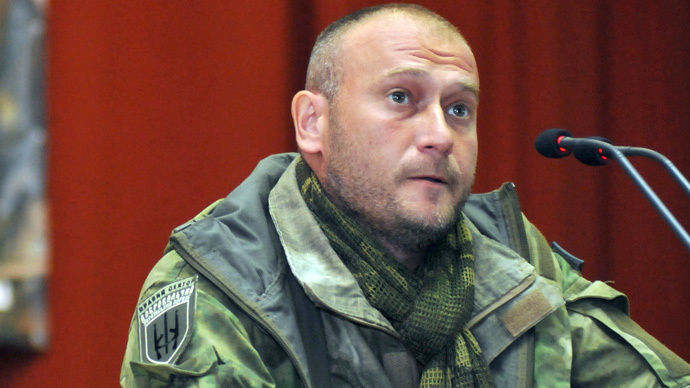
By rejecting a ceasefire agreed upon by the so-called “Normandy 4,” the leader of Ukraine’s Right Sector movement may undermine the fragile deal in the situation when there’s no unity even within the Kiev government, political expert Lode Vanoost told RT.
In a statement published on his Facebook page on Friday, ultranationalist leader Dmitry Yarosh claimed that the peace agreement has no legal merit and that it is contrary to Ukraine’s constitution.
READ MORE: Ukraine ultranationalist leader rejects Minsk peace deal, vows 'to continue war'
Vanoost told RT that Yarosh’s pronouncements could jeopardize a fragile peace accord.
RT:Do you think the Right Sector could derail the peace deal, agreed in Minsk?
Lode Vanoost: This could be devastating for the whole agreement. It could destroy it before it even starts. Now the fact that they announced it already, one day ahead, could of course mean that they sort of tried to force some kind of provocation so that the other side would react, giving them an excuse to go on. But nevertheless, this is indeed a very dangerous situation, yes.
RT:What sort of reaction do you expect from Kiev? Do you expect them to rein them in?
LV: Well, the thing is of course, your question presupposes that the government in Kiev speaks with one voice. It doesn’t. There are elements within the government, around the president, who would want to rein them in. Then there are elements around the prime minister, Mr. Yatsenyuk, who is also, let’s not forget, a very extremist nationalist. He does not belong to extreme right wing groups, but they are on his side. And he would really want an all-out war. That’s what he stands for. So I’m not really surprised. I’m not happy. My own analysis that I wrote two days ago, on the possible things that could happen before [the ceasefire takes hold], exactly is the behavior of these extreme right wing groups.
READ MORE: Supreme Court puts extremist tag on Ukrainian far right groups
RT:If they do go ahead and break the ceasefire that is due to come into effect at the end of the weekend, who would be to blame? Do you think Kiev would have to shoulder the blame for breaking the peace agreement?
LV: Well, it all depends very much on how the other side will react and on how the media here will react and the political leaders, because it’s very easily done to say, “Oh no, it’s the other side who started this whole thing.”
RT:But if the Right Sector actually says, “Look we’re not going to adhere to this peace deal that was signed,” where else could the blame lie?
LV: The thing is of course, will that be absolutely clear when it happens, if we see what happens in the past? Disinformation, willful disinformation, would not be the first time that it happens. But yes, if it can be proven that they are the first ones, it’s all on Kiev to blame of course.
RT:Let’s pursue that point. The State Department was asked about what happens if Ukraine violates the terms of the truce. That was a direct question in their press briefing. Let’s quickly listen to the answer that was given.
Jen Psaki: Certainly we call on both sides to abide by it. But I think that’s a highly unlikely hypothetical.
Matt Lee: Well, it may be, but I’m not sure it rises to the level of ludicrous if you’re talking about all sides needing to implement it; but now you’re saying that there won’t be consequences if one certain side won’t implement it.
Jen Psaki: Matt, over the last six months Ukraine has implemented the Minsk protocols whereas Russia has not.
READ MORE: Ukraine peace deal: Ceasefire starting February 15, removal of heavy weapons
RT:It’s quite clear that Western governments are saying that if this peace deal fails, sanctions will continue and may even be ramped up against Russia. But if the other side is culpable of the ceasefire failing, then perhaps nothing will happen.
LV: That’s exactly the evasive answer that I-forgot-her-name gave to the journalist there, a guy whose always posing critical questions, good questions. But that’s exactly the point. The one-sided approach of this conflict has been going on from day one, because there’s also another element there. America, the United States, the EU are not on the same—they don’t have the same agenda here. And I would not be surprised that when the Right Sector did their pronouncements today, that they did that in agreement with elements from the American side. That would not surprise me.
The statements, views and opinions expressed in this column are solely those of the author and do not necessarily represent those of RT.


